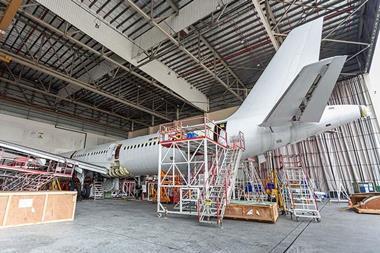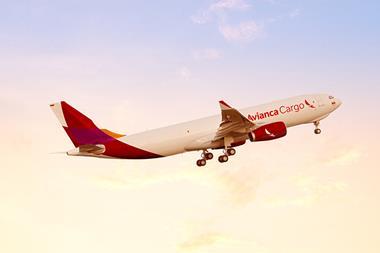
Ashok Rajan, senior vice president and head of cargo and logistics at IBS Software says air cargo must keep its seat at boardroom tables when passenger travel rebounds.
What air cargo trends have you observed over the last 12 months and how is the market changing?
The outlook for cargo has completely shifted because of the pandemic. Air cargo has gone from being part of the back end of large carriers’ businesses to having a seat at the boardroom table.
The bottom line is that airlines with cargo capacity have been able to weather the storm better than those that don’t.
Airlines that already had cargo as at least some part of their business were able to capitalise on a critical revenue generating function. Because they had freight infrastructure in place already, it was easy for them to switch their focus to cargo quickly and efficiently. It gave them a major head start in making the most of the revenue opportunity that cargo presents.
With capacity still some way below pre-Covid levels, but cargo yields at unprecedented levels, airlines are looking at ways to diversify and digitalise their cargo operations to meet demand and maximise their earning potential.
How cargo has performed during the pandemic has started to drive new business models too, like investment in freighters.
Passenger belly capacity can’t accommodate the full extent of demand, so we’re even seeing cargo drive new assets – which is a fascinating trend that nobody would have predicted 18 months ago.
How have air cargo sales shifted since the pandemic?
In effect, the pandemic has shined a spotlight on the status quo of how cargo has traditionally been sold. Airlines will increasingly start asking themselves how cargo can become not just a bigger part of their business, but how it can become a more profitable part too.
The reality is that yields have increased by up to five times, and while yields may start to decrease in the future, arguably Covid-19 has given the industry an opportunity to reset price points and move away from the historic model of fixed price capacity commitments that leads to a drive to fill up space with low value cargo.
Instead, the industry will likely see airlines prioritise investing in more specialised cargo areas so they can handle higher value shipments such as vaccines, medical equipment and PPE – and upgrade systems to accommodate the likes of temperature sensitive cargo and invest in digitalisation to streamline processes to capitalise on the growth opportunity.
Similarly, dynamic pricing is making inroads. The traditional system of hard and soft space agreements and spot rates does not enable cargo capacity to extract its full revenue potential. Airlines on legacy systems struggle to translate operational cargo data into dynamic market intelligence.
But optimising the price between supply and demand with contextual data benefits both the buyer and the seller. Buyers benefit from more affordable pricing, while sellers benefit from selling at the right price point.
Currently, what are the biggest challenges faced by air cargo and logistics companies?
Cargo has played a pivotal role in supporting airlines, but its ability to secure investments is not always proportional to its value.
Investments in the airline industry are often lopsided when revenues are constrained.
The onus is on air cargo to demonstrate growing and long-term value to the commercial performance of airlines.
Additionally, capacity is still limited. The pandemic has also meant the typical hub and spoke model is not able to work optimally.
The world’s biggest cargo hubs are working very well and are served by the larger airlines, but most traffic is point-to-point, so the reach that airlines have is more limited than normal.
That represents an opportunity for smaller, regional players to equip themselves to provide that second leg of connectivity.
Through a combination of digitalisation and partnerships. Digital platforms are allowing airlines to react dynamically to market conditions.
By digitalising their operations, carriers can overhaul traditionally legacy-based systems for critical business functions like sales and distribution, meaning they can offer better and more profitable services to clients, faster.
We at IBS Software have a strong track record of working with the most innovative businesses in the industry.
By establishing partnerships across the sector, we increase our customers’ reach to the market and their ability to maximise revenue streams.
How can airlines keep cargo as a valuable contributor to an airline’s commercial performance, post-pandemic?
This is another big challenge for the air cargo industry. Cargo’s elevated stature in airlines needs to prompt a reprioritisation of investment in air cargo innovation and practices.
Otherwise air cargo could slip down the list of investment priorities when the pandemic passes and passenger travel gains momentum.
Ensuring air cargo keeps its seat at the boardroom table will require:
-Creating a mindset shift on the value of air cargo – the onus is on the air cargo industry to demonstrate that the true value of cargo is not limited to driving revenues during a time of crisis and mitigating risk, but that it represents a long-term source of growth and innovation. As an industry we need to show that cargo is more than an ancillary service and is deserving of greater investment.
-Enhancing profits and pricing – creating a mindset shift at board level requires evidence of value. The critical role of cargo during the pandemic has prompted a re-examination of the traditional pricing model. By focusing on the value of shipments rather than pure capacity, airlines can increase yields and profits. And switching to a more dynamic pricing model will allow them to deliver a more innovative pricing model that is able to react to real-time market demands.
-Prioritising digital over legacy – in turn, being able to provide the evidence to create a mindset shift on the value of air cargo requires having the right systems to deliver insight. Digitalising air cargo systems and moving away from antiquated processes means airlines can gain actionable insight from how their operations are running and make informed business decisions – that ultimately better serve customers and impact the bottom line.










